If you’ve ever stepped foot into a sunglass store, you probably know there is more to picking out your next pair of sunglasses than just the perfect frame style. While choosing an outgoing design or subtle color can still be important, understanding the differences between polarized and non-polarized lenses is even more crucial.
Polarized lenses have become increasingly popular in recent years due to their superior protection against UV rays and impressive clarity on land and in the water. On the other hand, non-polarized lenses may not provide as much coverage but can still give you adequate everyday protection while keeping up with whatever look strikes your fancy. To help guide your decision-making process when buying sunglasses, keep reading to learn all about the features of polarized vs. non-polarized lenses.
What Does Polarized Sunglasses Mean?
Polarized lenses are a specialized type of sunglass lens uniquely designed to reduce glare and improve clarity. These lenses are particularly useful for protecting our eyes from the harsh glare of reflective surfaces such as snow, water, and asphalt.
The polarization of a lens is achieved through the injection molding of a film into the lens itself. This film then acts as a filter, blocking horizontal light rays while allowing vertical light rays to pass through. This effect glare reduction, makes it easier to see clearly in bright conditions.
Polarized lenses offer several benefits over traditional sunglass lenses. They improve color purity, contrast, and clarity, creating a more enjoyable visual experience. Additionally, polarized lenses are easier on the eyes, reducing the strain caused by harsh glare.
We offer a wide selection of polarized and non-polarized sunglasses at Valley Rays to meet your needs. Whether you are a sports enthusiast, a frequent driver, or simply someone who enjoys spending time in the great outdoors, polarized lenses are an excellent way to protect your eyes and enhance your visual experience.
Shop Polarized and Non-Polarize Sunglasses.
What is Glare?
Glare is a common problem affecting our daily life, especially when driving or outdoors. It occurs when light reflects off surfaces and creates an intense and bright light that can be blinding. The reflected light is often horizontally-polarized, meaning it concentrates on a single plane, making it harder for our eyes to adapt to the brightness. The result is reduced visibility, discomfort, and eye strain.
How Do Polarized Lenses or Polarized Sunglasses Work?
Polarized lenses work like a charm in cutting down the glare and providing clear vision when you are out in the sun. Polarized lenses work so well because they act like a picket fence with vertical slats, filtering horizontally-polarized light. They only allow vertically-polarized light to enter our eyes, which benefits our vision. The best part is that this results in significantly clearer vision and reduced eye strain while protecting your eyes from damaging harmful UV rays.
Benefits of Polarized Lenses:
Polarized lenses have become increasingly popular due to their significant benefits. Here are just a few of the advantages:
1. Superior Eye Protection:
Polarized lenses are specially designed to provide superior eye protection from the sun's harmful UV rays. These lenses have a special filter that blocks out reflective and scattered light rays, thus preventing eye fatigue, headaches, and even macular degeneration.
2. Polarized Sunglasses Reduce Glare:
Polarized lenses reduce glare, providing crystal-clear vision even in bright sunlight. This is especially beneficial for outdoor enthusiasts like hikers, bikers, and runners who must focus on their activity and surroundings.
3. Enhanced Contrast:
Polarized lenses enhance the contrast of colors by minimizing color distortion, making it easier to see details and textures. This makes them perfect for water sports like boating, fishing, and sailing, where you must see clearly beneath the water's surface.
4. Safe Driving:
Polarized lenses can significantly improve driver safety, particularly during the daytime when sunlight glare is at its highest. By blocking out reflections and glare from car and road surfaces, polarized lenses allow drivers to see the road ahead more clearly, reducing the risk of accidents.
5. Fashionable & Colorful Polarized Sunglasses
Polarized lenses are highly fashionable and available in many different styles and designs. They can be found in various colors, tints, and coatings, allowing you to select a pair that matches your style and personality. Whether you want vintage polarized sunglasses or the latest designer frames, there's something for everyone.
Drawbacks of Polarized Lenses:
Although polarized lenses offer many great benefits, they also come with certain drawbacks. Here are a few to consider before you make your purchase:
1. Difficulty Viewing LCD Screens:
One of the biggest drawbacks of polarized lenses is that they can make it difficult to view LCD screens clearly. This includes things like smartphones, GPS devices, and dashboard displays in cars. This is because polarized lenses work by filtering out certain light waves, and LCD screens emit polarized light. This can create a dark, blurry or rainbow effect, making reading text or seeing images harder.
2. Trouble Distinguishing Between Different White Colors:
Another issue with polarized lenses is that they sometimes make it hard to distinguish between different shades of white. This is particularly a concern for people who spend time outdoors in snowy environments, such as skiers or snowboarders. Polarized lenses can create a muted or washed-out effect, making it hard to distinguish between things like snow and ice on the mountain.
3. Providing Too Much Filtering For Certain Wearers:
Finally, some people find that polarized lenses filter their eyesight too much. This can result in a loss of contrast or brightness, making it difficult to see in low-light conditions. Additionally, some people experience headaches or eye strain when wearing polarized lenses, especially if they have a history of vision problems like astigmatism or amblyopia.
Despite these potential drawbacks, polarized lenses remain a popular choice for many people. They offer excellent protection against glare and UV rays, which can be particularly important for people who spend a lot of time outside.
What Are Non-Polarized Sunglasses?
Non-polarized lenses lack the special coating found in polarized lenses that offers superior protection against glare, particularly from horizontally reflected light. While they still offer good UV protection, non-polarized lenses do not reduce as much glare, which can cause eye strain and discomfort. This makes them less effective in environments where glare is a significant problem, such as on water or snow.
Benefits of Non-Polarized Lenses:
Although polarized lenses offer superior protection against glare, there are some situations where non-polarized lenses may be preferable. Here are a few of the benefits they have to offer:
1. Easier to View LCD Screens:
Non-polarized lenses make it easier to view LCD screens, such as those found on smartphones and GPS devices. This is because the lenses don’t contain the special coating that prevents certain light waves from reaching your eyes, which can interfere with LCD screens.
2. Ideal for Certain Activities:
Non-polarized sunglasses are highly recommended for activities like downhill skiing, operating heavy machinery, and flying. These activities require clear vision, and wearing polarized lenses can make it difficult to detect changes in color or see certain screens, which could potentially compromise safety.
3: Effective Eye Protection:
Non-polarized lenses still offer excellent UV protection and can block up to 100% of harmful UVA and UVB rays. This means your eyes are protected against the sun's most damaging rays, even if they don't filter out as much glare as polarized lenses.
4. Cost-effective:
Non-polarized lenses are generally less expensive than polarized lenses. This makes them a more budget-friendly option for people who want to protect their eyes from UV rays without breaking the bank.
5. Variety of Colors:
Non-polarized lenses come in various colors, finishes, and hues, making it easy to find a pair that complements your style or preferences. You can choose from various tints and shades to match your outfit or mood.
6. Easy to Find:
Non-polarized sunglasses are widely available in retail stores around the world. You don't have to travel to specialty stores to find them, as they can be found in department stores, drugstores, and even online.
Drawbacks of Non-Polarized Lenses:
Non-polarized lenses are widely used and appreciated for their ability to protect our eyes from harmful UV rays and bright light. However, they do have some drawbacks, including:
1: Do Not Block All Reflected Light:
Non-polarized lenses have limitations in terms of blocking reflected light from flat surfaces, such as water or roads, which can cause glare and discomfort to the eyes.
2: Cause Eye Strain And Headaches:
Due to their lower ability to block reflected light, non-polarized lenses can result in eye strain and headaches, making it difficult for you to focus on your work while driving or while indulging in outdoor activities.
3: Do Not Enhance Color:
Unlike polarized lenses, non-polarized lenses do not enhance color contrasts as much since they do not block as much glare from surfaces. This results in reduced clarity and a flat-color appearance.
4: Less Clarity:
Non-polarized lenses do not provide the same level of clarity as polarized lenses; hence, you may notice a difference in how we perceive contrast, depth, and visual acuity while wearing polarized glasses.
5: Limited to Basic Activities:
Non-polarized lenses are well suited for everyday activities such as hiking, or walking. However, when indulging in activities like fishing, cycling, driving, or playing sports, the drawbacks of non-polarized lenses become more apparent.
Shop Non-Polarized Sunglasses.
How to Choose From Polarized and Non-Polarized Sunglasses?
The decision of which lenses to choose ultimately depends on your budget, lifestyle, your activities, and your required comfort level. Polarized lenses are the way to go if you want protection from UV rays and glare. On the other hand, if you want a more cost-effective option for everyday activities, non-polarized lenses can provide adequate eye protection. When choosing from polarized and non-polarized sunglasses, always consider the situations in which you will be wearing them; this way, you can make an informed decision that best suits your need.
Are Polarized Lenses Better Than Non-Polarized Lenses?
The answer to this question depends on the situation and your personal needs. Both polarized and non-polarized lenses can protect your eyes from UV rays so either option will suffice in that regard. However, if you are spending time outdoors in especially bright conditions or near water— polarized lenses may be the better option since they are able to reduce glare more effectively. On the other hand, if you need unrestricted visibility and are not worried about glare, a non-polarized lens may be the better choice.
How to Know If Sunglasses Are Polarized?
Polarized sunglasses are popular for outdoor activities such as boating, driving, and skiing as they reduce glare from surfaces like roads or water. Here's how you can tell if your sunglasses are polarized:
The easiest way to check the polarization of your sunglasses is to perform the following steps:
1. Take your sunglasses and hold them in front of a device with a screen, such as a mobile phone, laptop, or tablet.
2. Then, rotate either your sunglasses or the device by 90 degrees.
3. Observe whether the screen appears brighter or darker through the lens.
If brightening or darkening happens when you rotate the lens or device, then your sunglasses are polarized. However, if no changes occur when rotating, then your sunglasses are most likely non-polarized.
Why Do Polarized Lenses Darken?
The reason behind the darkening effect on polarized lenses is that screens use polarizing filters that emit horizontally polarized light. When wearing polarized lenses, they block this type of light, resulting in a darker screen. This darkening effect is beneficial in reducing glare and improving visibility in bright conditions.
How Does Rotating Polarized Lenses Affect Brightness?
If your lenses are polarized, rotating them by 90 degrees, either clockwise or anticlockwise, will cause the screen to appear darker or brighter. Brightening can happen because the polarizing filters become perpendicular to the screen's polarization filter, allowing more horizontally-polarized light to pass through the lenses and reach your eyes.
Why Do I Sometimes See Rainbows in Car Windows?
Have you ever experienced seeing rainbow-like patterns on the side or rear car windows while wearing polarized sunglasses? If yes, then it may interest you to know that these rainbow-like patterns are not a result of any defect in your lenses or eyes. Rather, they are the strain patterns present in tempered car windows.
Car side and rear windows go through a specific process known as tempering to ensure that they do not shatter into sharp pieces during accidents. This process involves uneven expansion and contraction of the glass, where the surface of the glass heats and cools faster than its center. As a result, stress on the clear material of the glass (in this case) produces birefringence, which redirects light at different angles, giving rise to the rainbow-like patterns you see.
It's worth noting that this phenomenon is not limited to car windows only. Polarized sunglasses or lenses can also bring out the strain patterns in any tempered glass, such as mobile phone screens, or even glares with tempered glass. Having this knowledge comes in handy, as you can explain this natural phenomenon to someone who does not know about it.
Frequently Asked Questions: Polarized vs. Non-Polarized Sunglasses
Q: Why Would You Want Non-Polarized Sunglasses?
A: Non-polarized sunglasses are an economical and practical choice for everyday activities such as reading, walking, or shopping. They provide adequate eye protection from the sun's UV rays and bright light.
Q: Is it OK to Wear Polarized Sunglasses?
A: Yes, it is perfectly safe to wear polarized sunglasses. These lenses are designed to reduce glare and provide enhanced clarity while eliminating eye strain and headaches. They also offer better protection from UV radiation than non-polarized lenses. Therefore, they are ideal for activities like fishing, driving, cycling, or playing sports.
Q: Is Polarized Sunglasses Worth the Extra Money?
A: Yes, polarized sunglasses are worth the extra money as they offer better protection from UV radiation and glare. But at Valley Rays, we offer a wide range of sunglasses at an affordable price to suit everyone's needs.
Q: Are All Polarized Lenses Equal?
A: Not all polarized lenses are equal. Some may offer better visibility and improved clarity, while others may not be as effective in filtering out light glare. Additionally, some lenses may also produce an unnatural tint or coloration to objects when viewed through them.
Q: Are All Ray Ban Sunglasses Polarized?
A: Not all models of Ray Ban sunglasses are polarized. However, many of their designs do feature polarized lenses designed to reduce glare and improve visibility in bright sunlight. You can easily identify these models by looking for the "P" logo on the lens.
Final Verdict: Sunglasses Polarized vs Non-Polarized
Hopefully, you can better understand the difference between polarized and non-polarized sunglasses. While polarized lenses are polarized sunglasses that offer superior clarity, protection from reflected light, and enhanced colors, they may be too costly or inconvenient for some. On the other hand, while non-polarized lenses are more affordable and easier to find, they do not block out reflected light as effectively.
Remember always to protect your eyes from the sun’s UV rays, whether you wear polarized glasses or not. And if you do, make sure you are wearing polarized sunglasses to maximize their protection. At Valley Rays, we have a wide selection of polarized and non-polarized sunglasses to suit all needs. So, shop now and get the best pair for yourself!



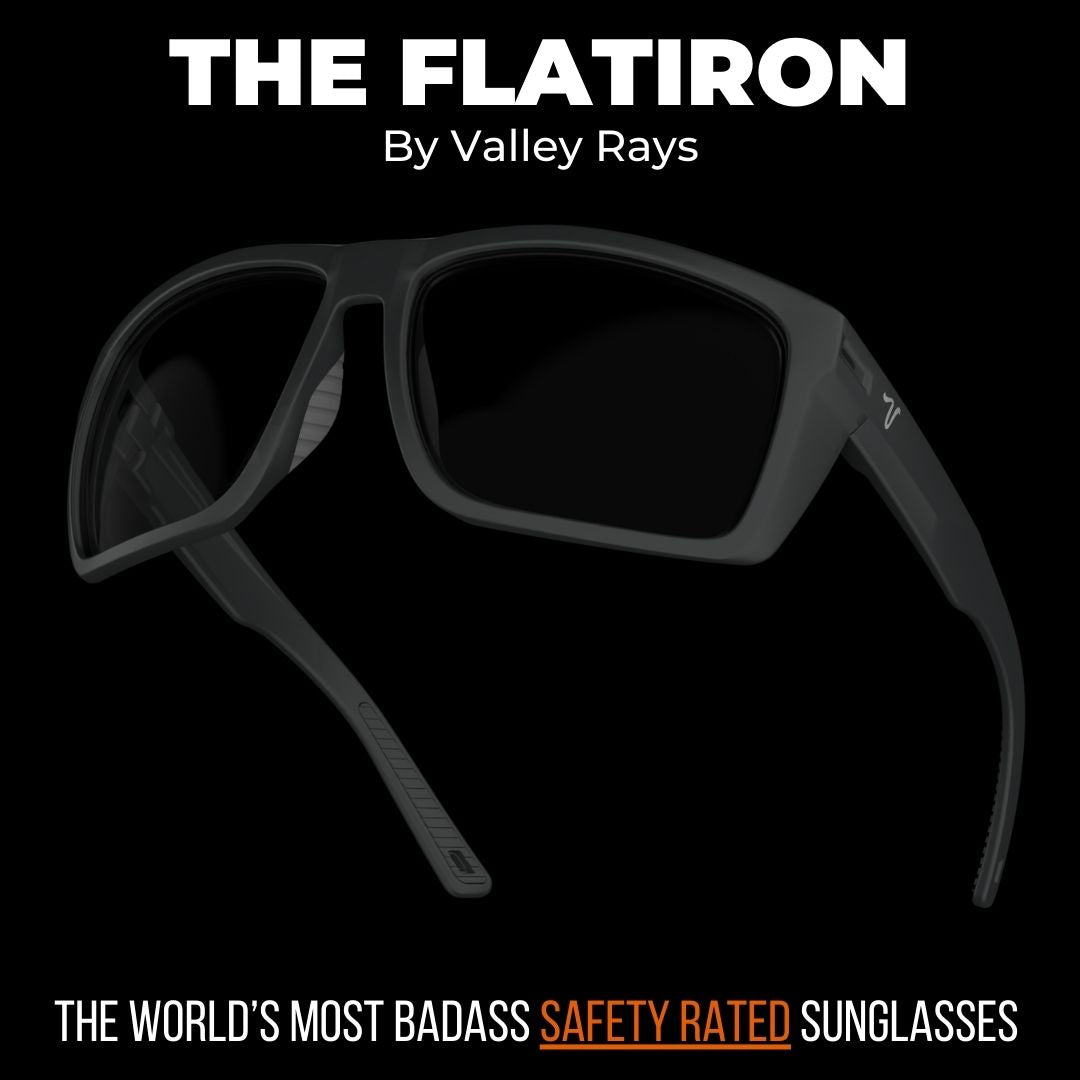

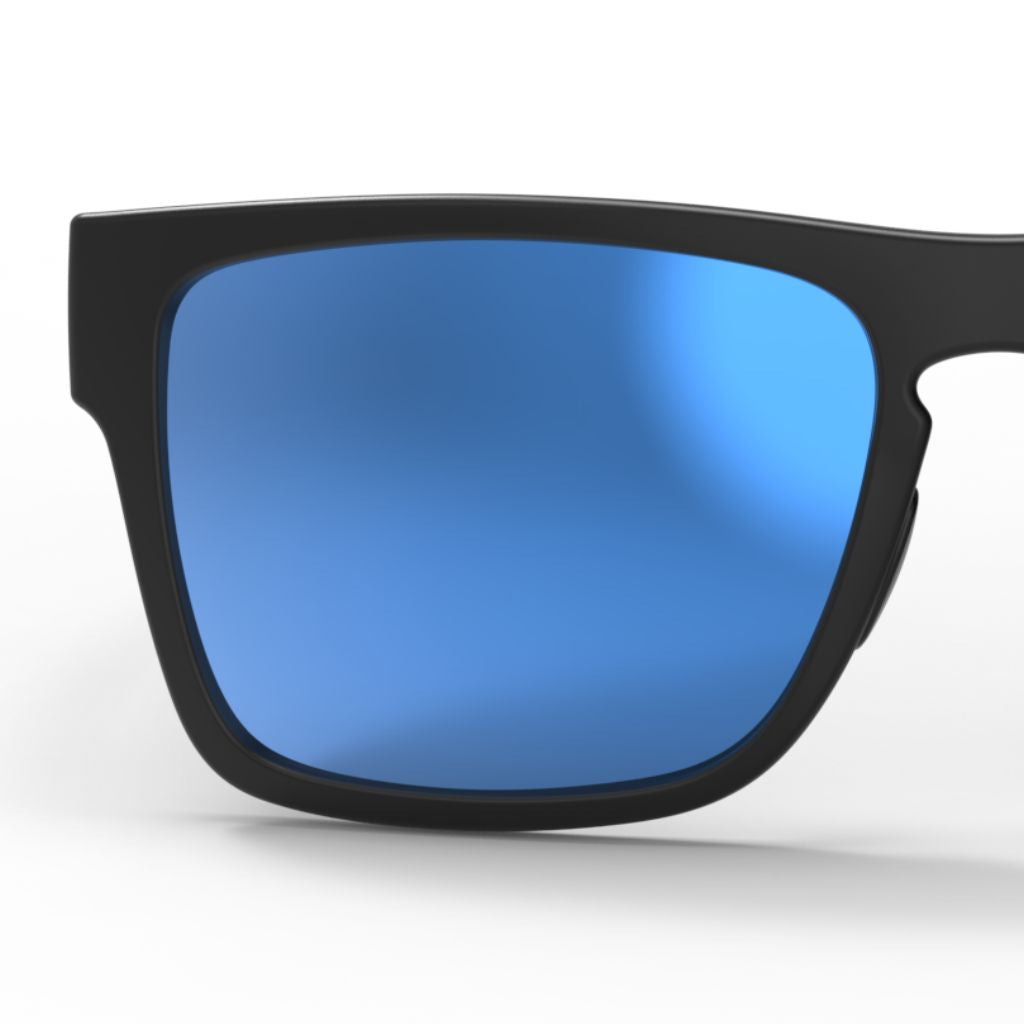
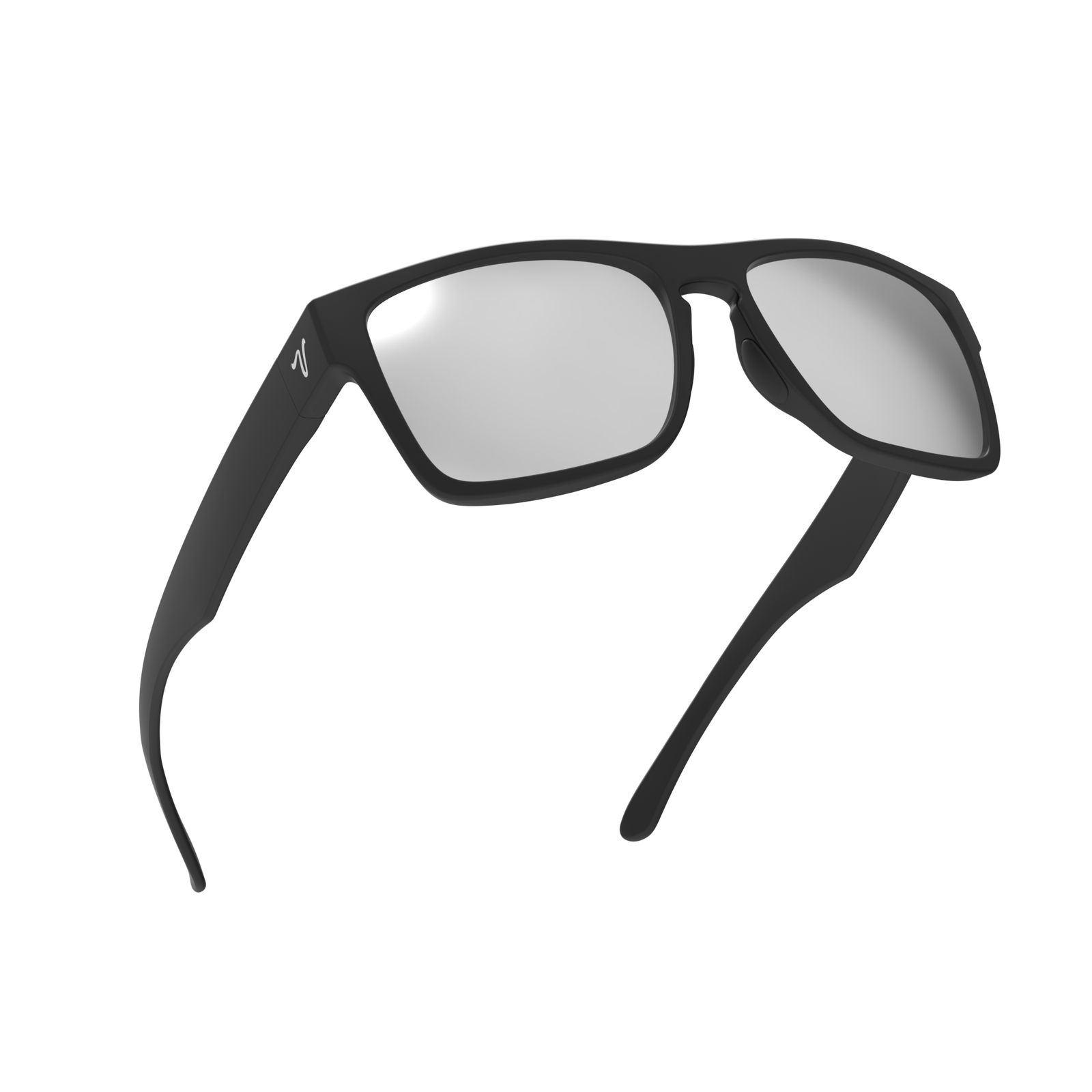














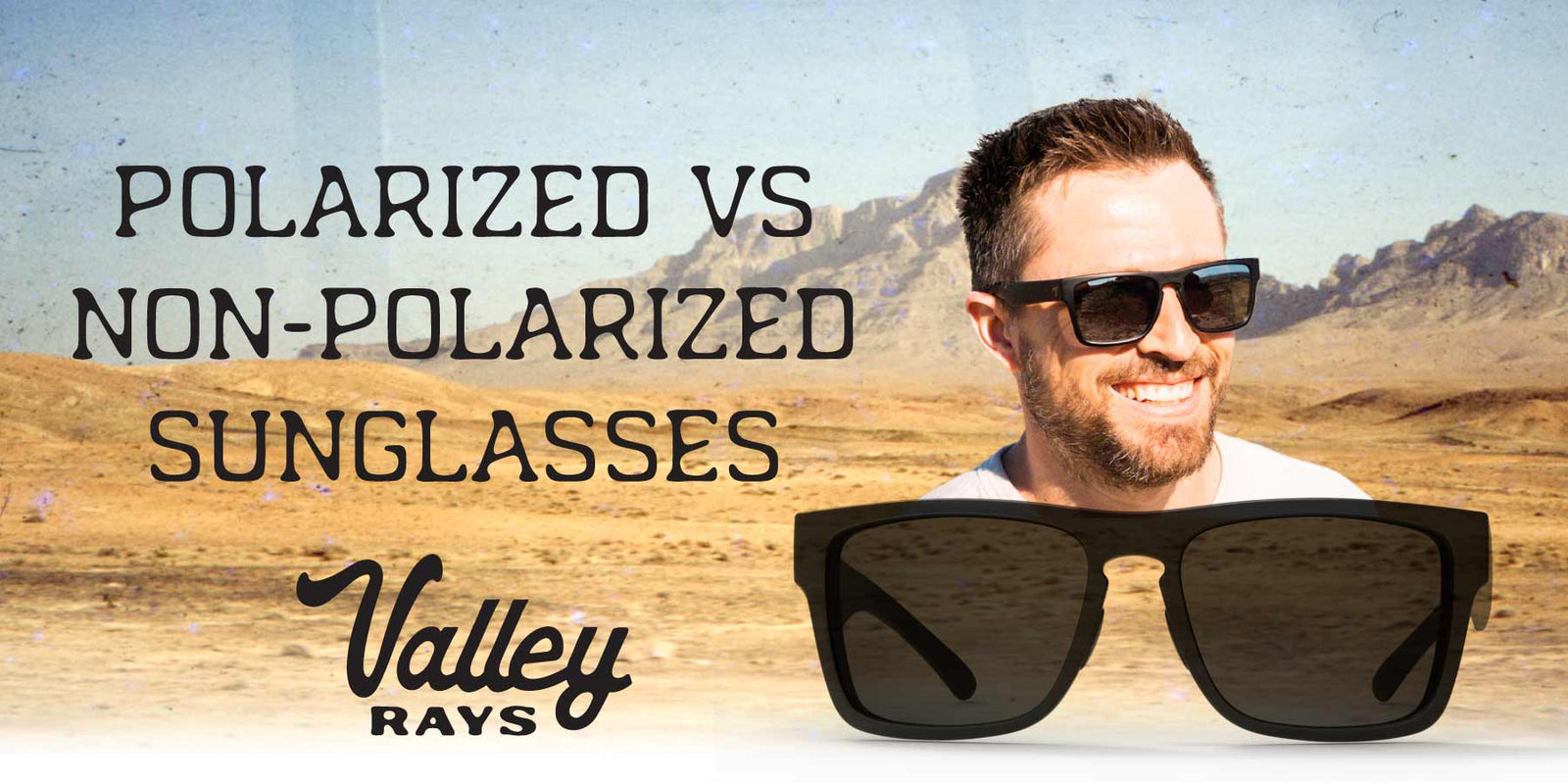
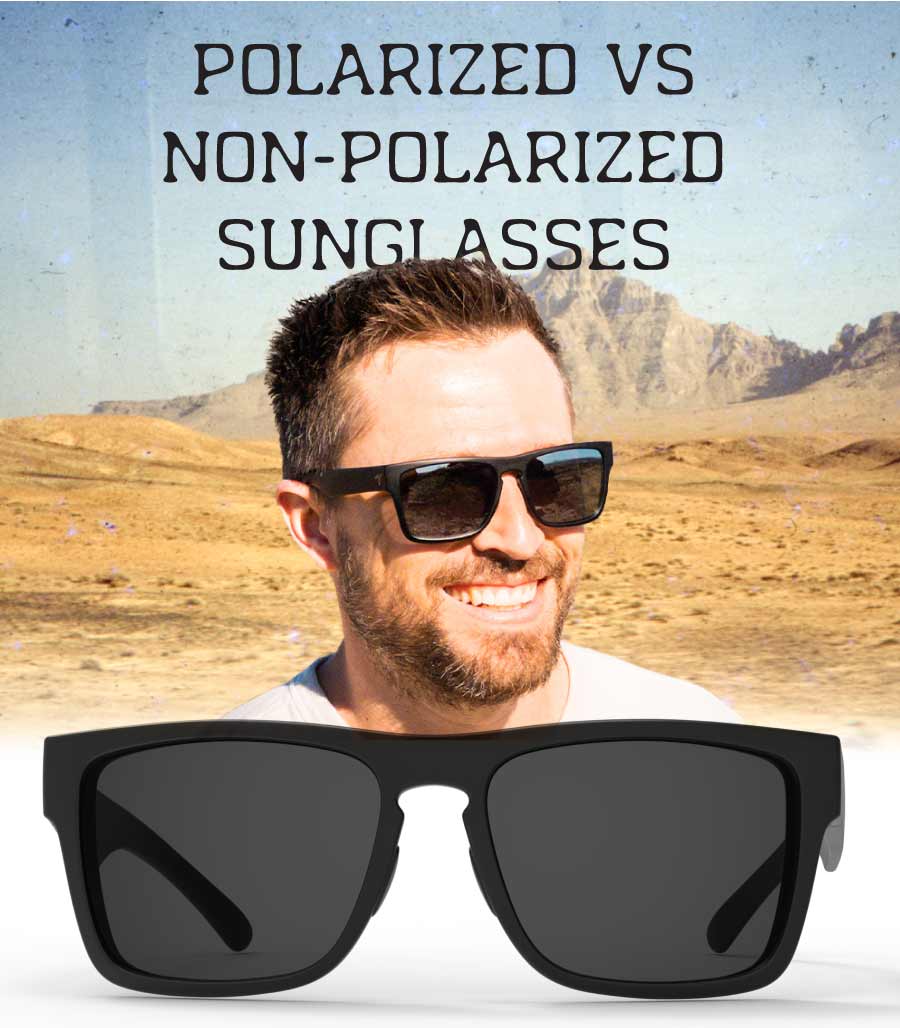

















Leave a comment (all fields required)